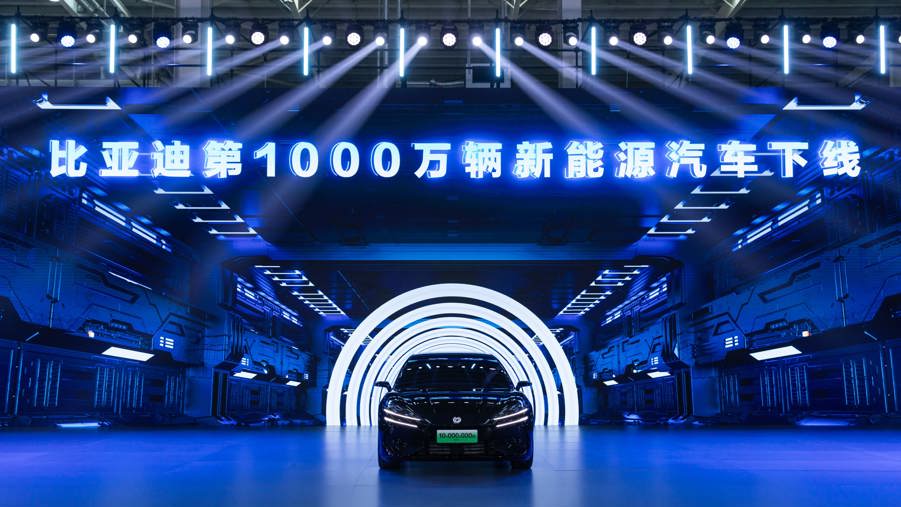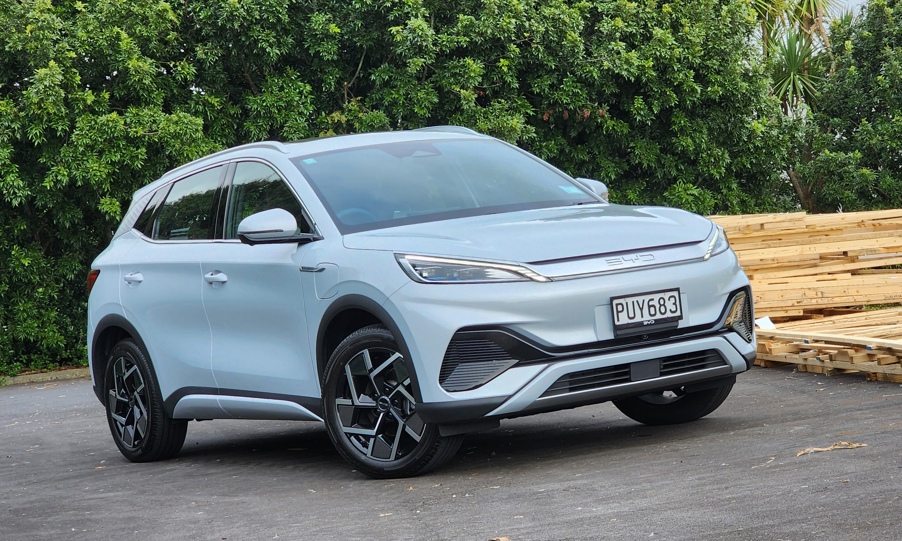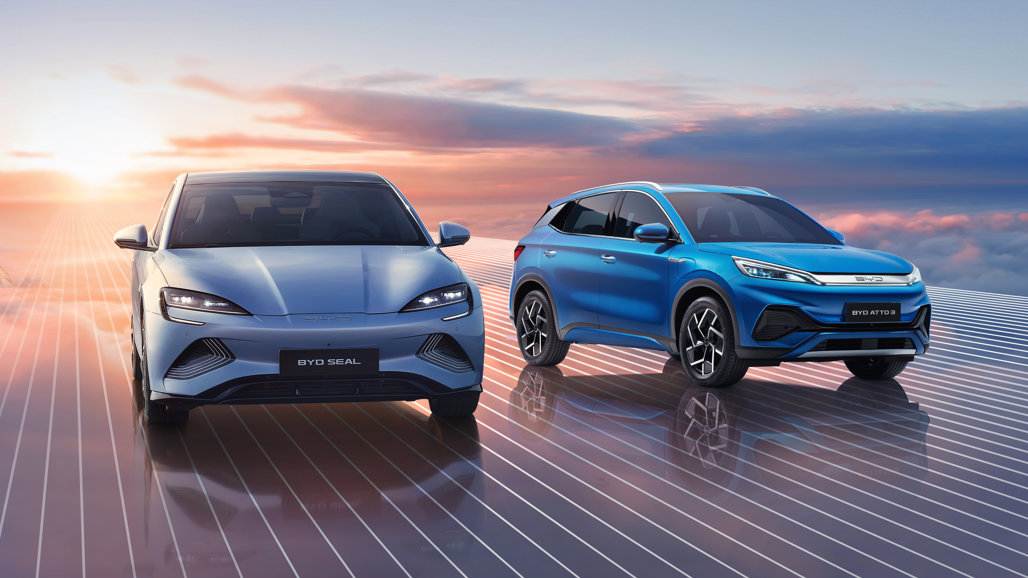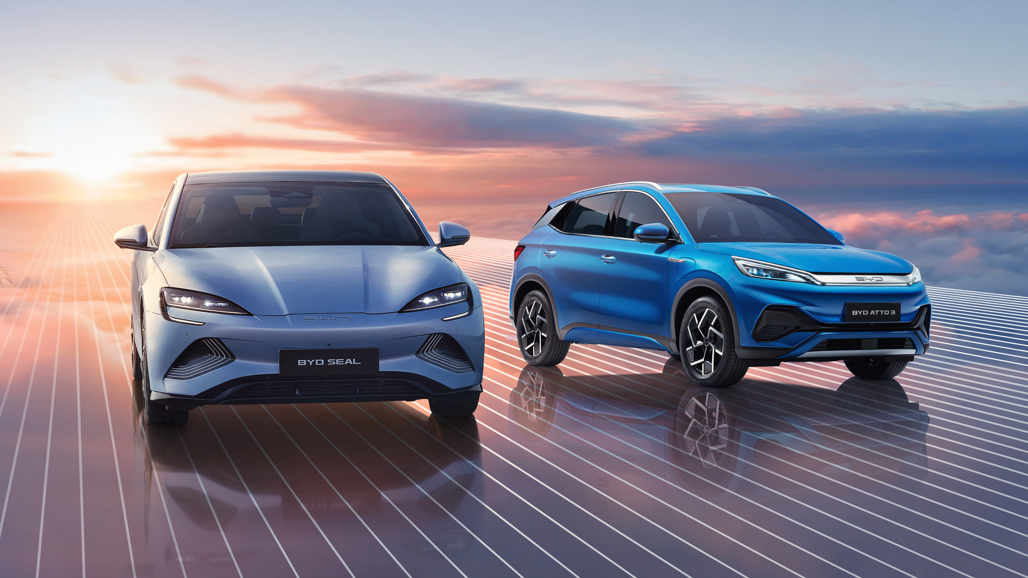In a landmark achievement ahead of its 30th anniversary, Chinese automotive giant BYD has become the first carmaker globally to produce 10 million new energy vehicles (NEVs).
NEVs are defined as models powered predominantly by electric energy. These include plug-in hybrids (PHEVs), battery-electric cars (BEVs), and hydrogen fuel-cell electric vehicles (FCEVs).
BYD's remarkable feat comes just three years after the company celebrated its one-millionth NEV, highlighting an unprecedented surge in production and demand.
Record-breaking sales

BYD's meteoric rise in the industry is exemplified by its recent sales figures. In October alone, the company sold over 500,000 vehicles - a new record for a single month and the fifth consecutive month of surpassing previous sales milestones.
Year-to-date, BYD has sold more than 3.25 million NEVs, marking a 36% increase compared to the same period last year. Notably, nearly 1.36 million of these sales were all-electric vehicles.
And after surpassing industry stalwarts Nissan and Honda in the third quarter, the company is now on track to overtake Ford in global deliveries. In the last quarter alone, BYD outsold Ford by approximately 40,000 vehicles, signalling a significant shift in market dynamics.
Amidst escalating competition and an aggressive EV price war in China, BYD is strategically expanding its global footprint. The company recently inaugurated its first manufacturing plant in Thailand, tapping into one of the fastest-growing EV markets.
Plans are also underway to establish facilities in Brazil, Hungary, Mexico, Pakistan and Turkey, positioning BYD as a formidable player on the international stage.

BYD's aggressive expansion has, of course, reached the local market.
According to data from Canstar, the company sold 3715 cars in New Zealand in 2023, securing the tenth spot among the year's best-selling car brands.
The popular BYD Atto 3 electric SUV emerged as a standout performer, ranking as the second-best-selling EV with 3171 units sold.
As of November 2024, the Atto 3 continues to be a popular choice, positioned as the fourth best-selling EV with 307 units sold year-to-date.
Additionally, the BYD Dolphin has entered the top ten with 126 units sold, highlighting the brand's growing appeal among Kiwi consumers.
Humble beginnings

Founded in 1995 with just 20 employees, BYD's origins as a battery manufacturer laid the groundwork for its future success.
By 1998, the company had become the world's second-largest producer of rechargeable batteries, securing major contracts with telecommunications giants Motorola and Nokia by 2000.
This expertise in battery technology proved invaluable as BYD transitioned into automotive manufacturing.
In 2005, BYD launched its first mass-produced car, the F3, which sold around 100,000 units within just over a year.
Building on this momentum, BYD introduced the F3DM in 2008, equipped with its first-generation Dual Mode (DM) hybrid technology. Wang asserts it was the "world's first" plug-in hybrid available to consumers.
A pivotal moment for BYD came in March 2022 when it ceased production of internal combustion engine (ICE) vehicles to focus exclusively on plug-in hybrids and all-electric models.
This strategic pivot accelerated the company's growth trajectory, with production soaring from one million NEVs in May 2021 to ten million today.
To keep pace with escalating demand, BYD is significantly ramping up production and workforce. Executive Vice President He Zhiqi revealed that the company hired nearly 200,000 new employees between August and October.

BYD's extraordinary journey from a modest battery producer to a global automotive leader highlights the dynamic evolution of the industry.
As the company continues to innovate and expand into new markets with vehicles like the Shark 6 plug-in hybrid ute, it is poised to play a pivotal role in shaping the future of electric mobility worldwide.





